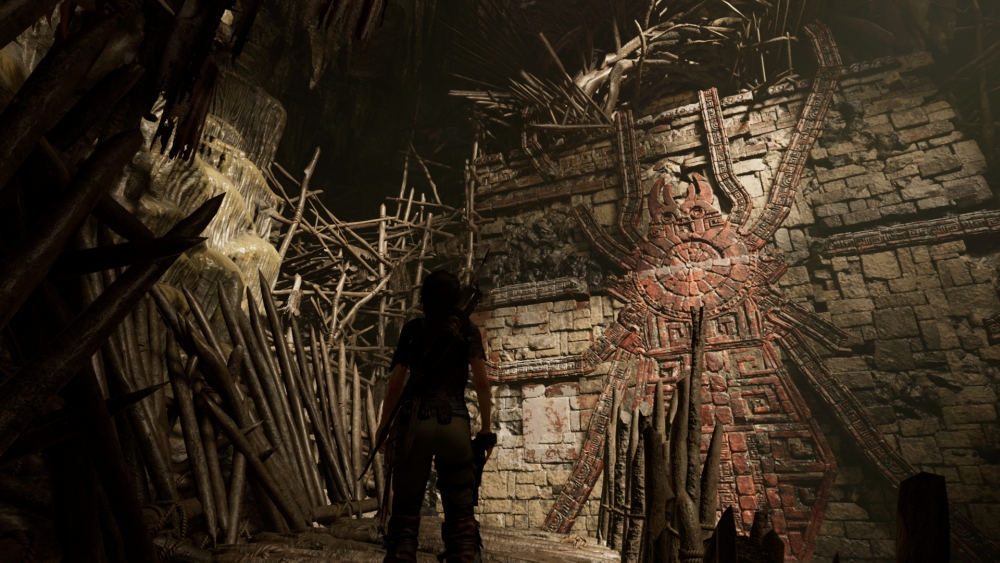I don’t know if this applies to many other individuals, but when I think of Lara Croft or Tomb Raider, I inadvertently think of Indiana Jones, as well as Nathan Drake and Uncharted. Having played Indiana Jones and the Fate of Atlantis back when my age was still measured in single digits, Indy became his own character archetype in my head, and I’ve begun seeing archaeologist-adventurer or spelunking types like Nate and Lara as his disciples and spiritual successors.
It was through such lenses that I played the Uncharted games, and it’s much the same story through the Tomb Raider reboot. That said, the first game in the series that I’ve properly played is this one, Shadow of the Tomb Raider. Which, perhaps inappropriately, will be the subject of this review.
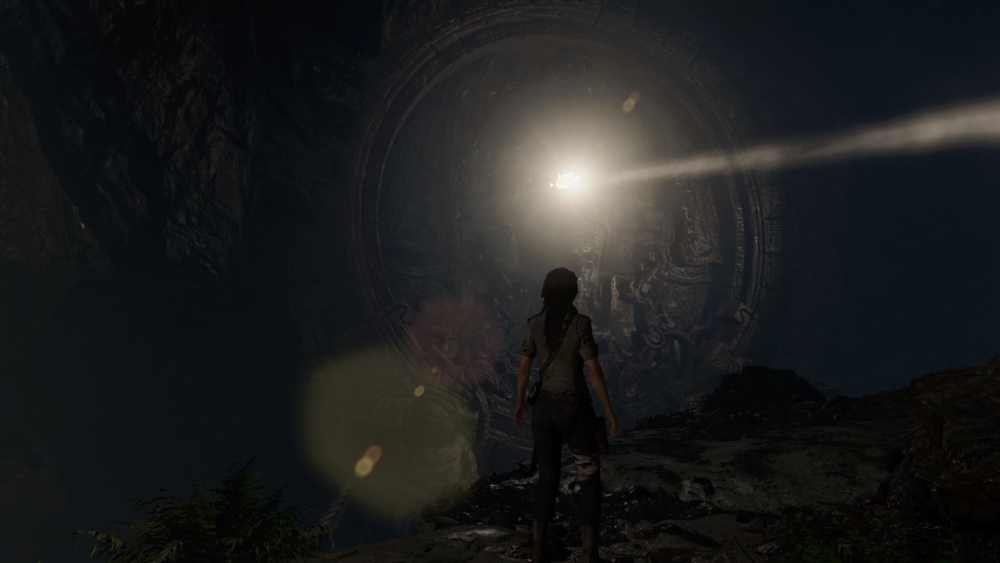
I did not complete the 2013 reboot, and I don’t even own its sequel. Nor have I played any of the Tomb Raider games of the previous generations. But having finished the third game of the series and thoroughly enjoying it, I went back and blitzed through as much of the first entry of the reboot as I could. And as I progressed further and further, I understood what it was I’ve been missing, but also found the words to describe the uneasy feeling I had when playing Shadow of the Tomb Raider.
Story
By this point, Lara has seen herself through two prior adventures, swimming through the blood of those who wanted hers. She’s had plenty of experience going through dangerous situations, so you’d naturally expect that she’s no longer the meek young lady that she was.
And indeed, she isn’t. But rather than a level-headedness and the ability see the bigger picture, she ends up being somewhat selfish, stubborn and brash. Not to mention, much of the plot only existed because of Lara’s tunnel vision near the end of the first arc.
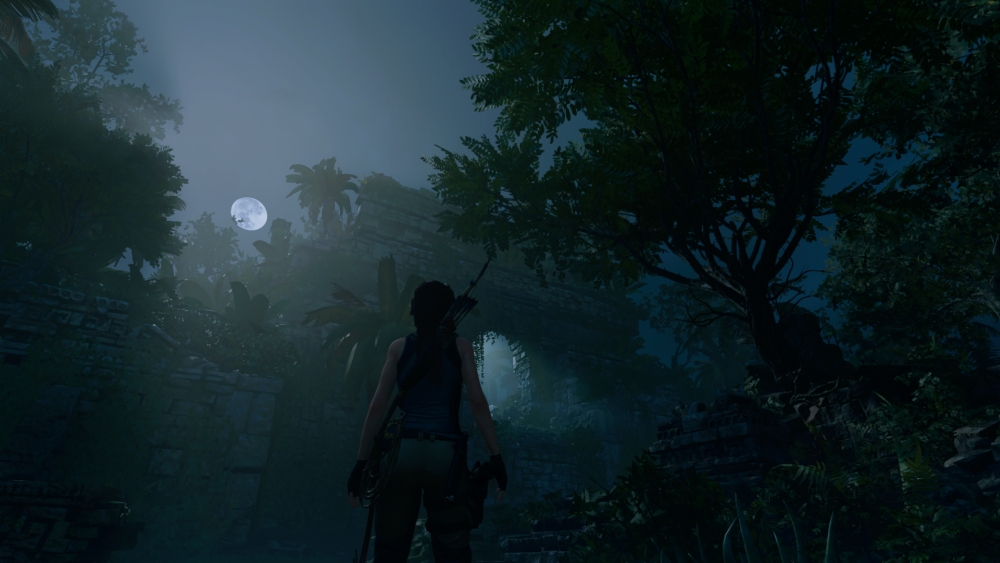
You’ll see this build up during the introduction of the game, and every once in a while you’ll see this side of her surface, especially when the stakes are presumed to be high. That’s when Lara is prone to go off the hinges. There’s even a time when she just goes complete berserker mode, which was as jarring as she got throughout the game.
But fortunately, Jonah is around to anchor Lara back down to earth. And he gets better and better at it as the game goes on.
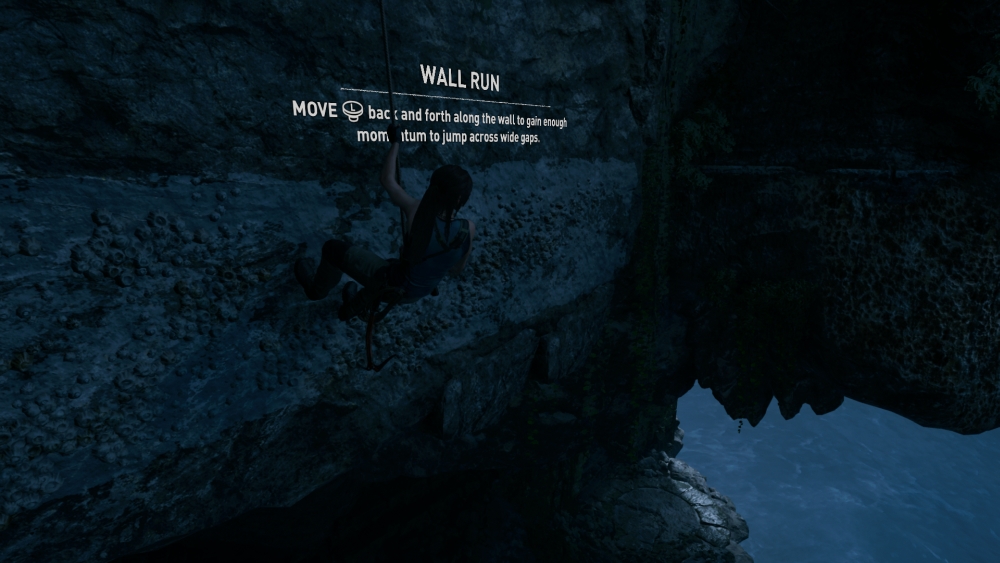
Lara’s character aside, Shadow of the Tomb Raider opens in a very stereotypical manner. The game really comes into its own after the first arc, and is paced well enough that you are free to progress whichever way you want. You could sprint through the story, and when you’re out of breath, take a break by exploring the the area around the main hub. Or, you can do what I do, and clear out all the side quests in every new area you get to before going through with the story.
And if you like to go after collectibles, some will also offer real world trivia about explorers of old, such as Percy Fawcett. More importantly, there’s quite a lot to learn about ancient civilsations of South America, such as the Maya and the Inca.
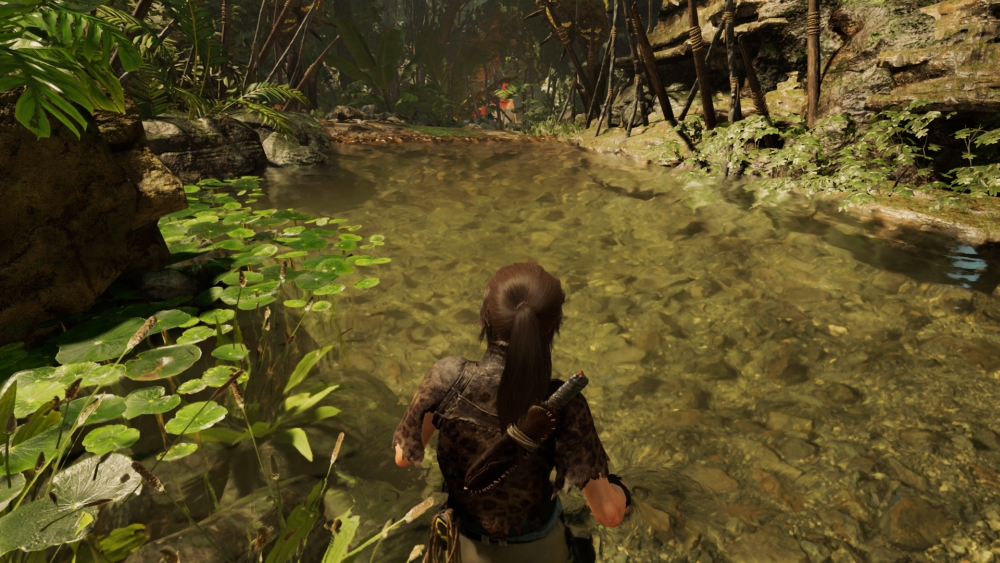
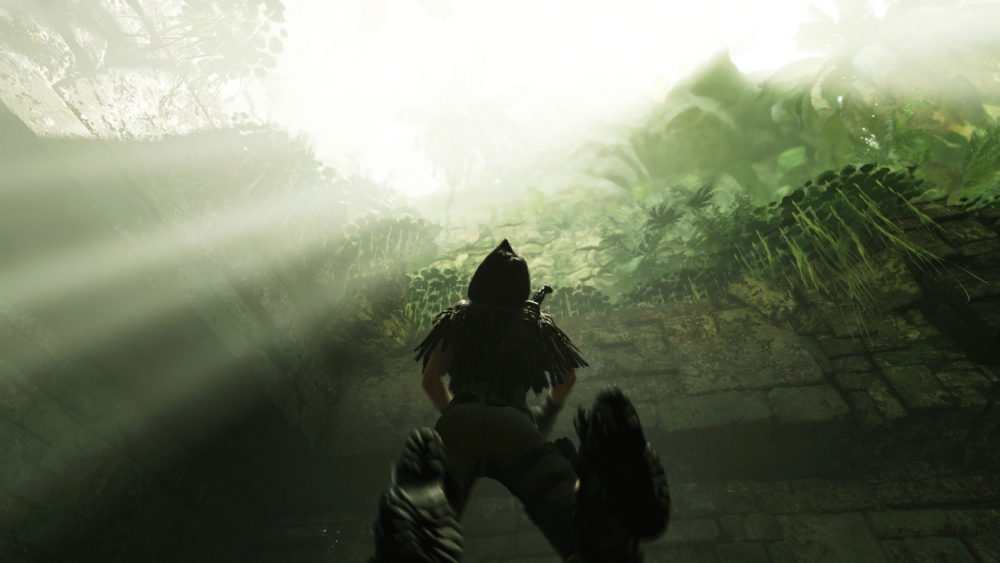
That said, there are minor annoyances to deal with during the first playthrough – gated collectibles that require equipment acquired much later in the game to get to. If you’re rushing through the story and are backtracking every once in a while, then this poses no issue. But if you want to be completely done with an area before moving on to the next, then this will be something that keep nagging at the back of your head until you get the needed gear.
Gameplay
Combat isn’t as straightforward as it was anymore. In the past, once you openly engage human enemies in the game, you stay in combat mode until the end of the encounter. Now, stay out of sight for long enough, Lara will disengage and foes will enter a ‘searching’ phase akin to the one seen in the Metal Gear Solid series.
While in the above phase (or when completely hidden), Lara can perform stealth kills to whittle down enemy numbers quietly. Performed from a hiding spot and and Lara attempts to pull her victim into said spot. This, unfortunately, is something that can be endlessly abused.
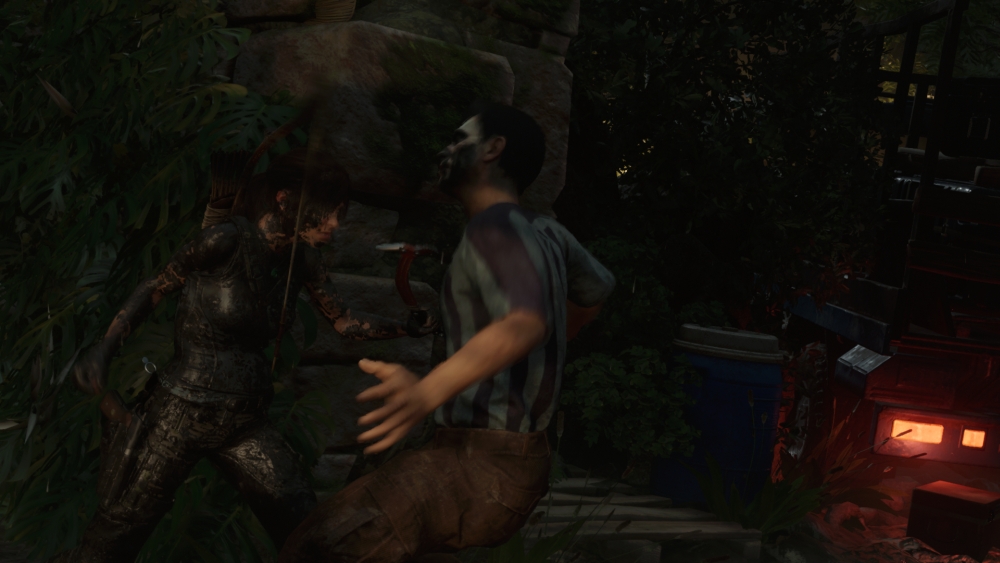
Doing this while at the very edge of a hiding spot will leave part of your victim’s body exposed, and when lone foes approach to investigate, they can then be taken out the same way the first one was.
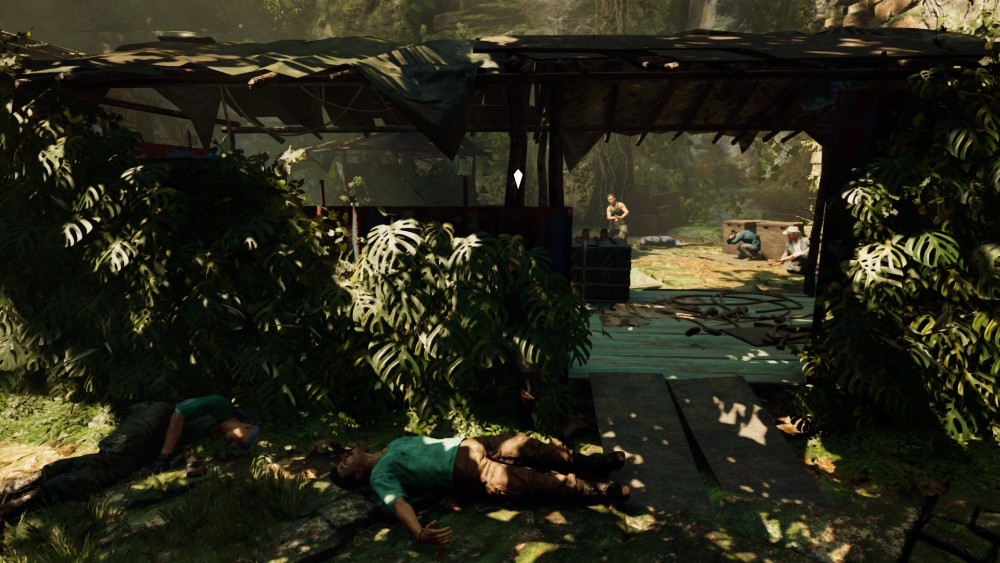
You can also booby trap a fallen enemy’s body with explosives. This makes them emit a beeping sound, which will draw enemies to it. If more than one target enter the explosive radius simultaneously, then you’d have scored a multi-kill with a single trap.
There is no doubt in my mind that the game aims to portray Lara as a seasoned hunter of treasure, animals and humans alike. The only trouble with it is that the stealth mechanics swings between two extremes. When it’s not sluggish – especially when trying to move around between cover undetected – it’s grossly overpowered.
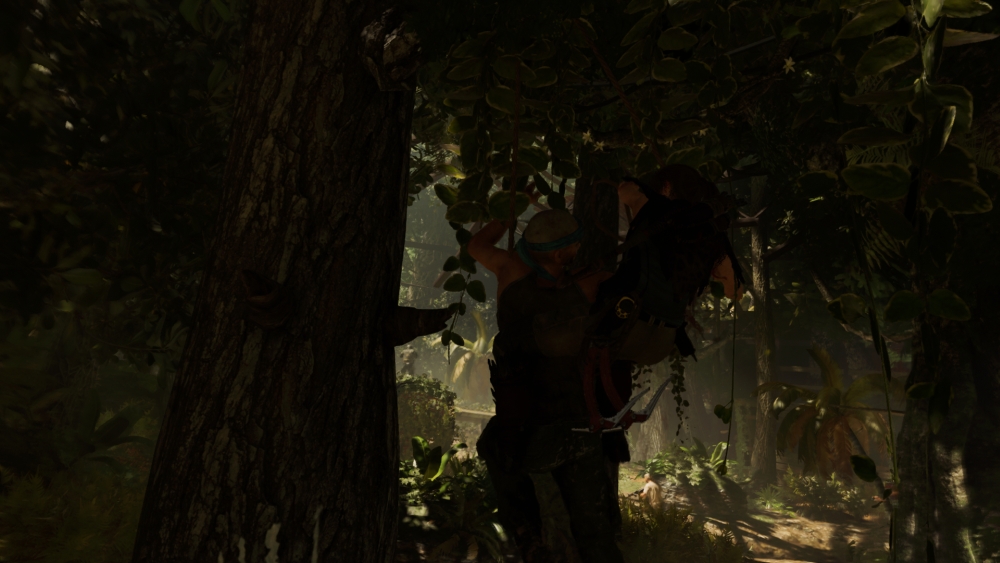
And the fact that I can count on one hand the number of encounters that forced me out of stealth; you can see why players who prefer a stealthy approach will have a way easier time with the game. The total number of encounters with human enemies is low to begin with, at least when compared to the Uncharted series.
Which is not all that important, fortunately. This is simply because, being a Tomb Raider game, the eponymous tomb raiding is where the game really shines. While they’re few in number, and clearing them unlocks abilities instead of granting you weapons or items, it’s the challenge that they provide that sets the game apart from the rest.
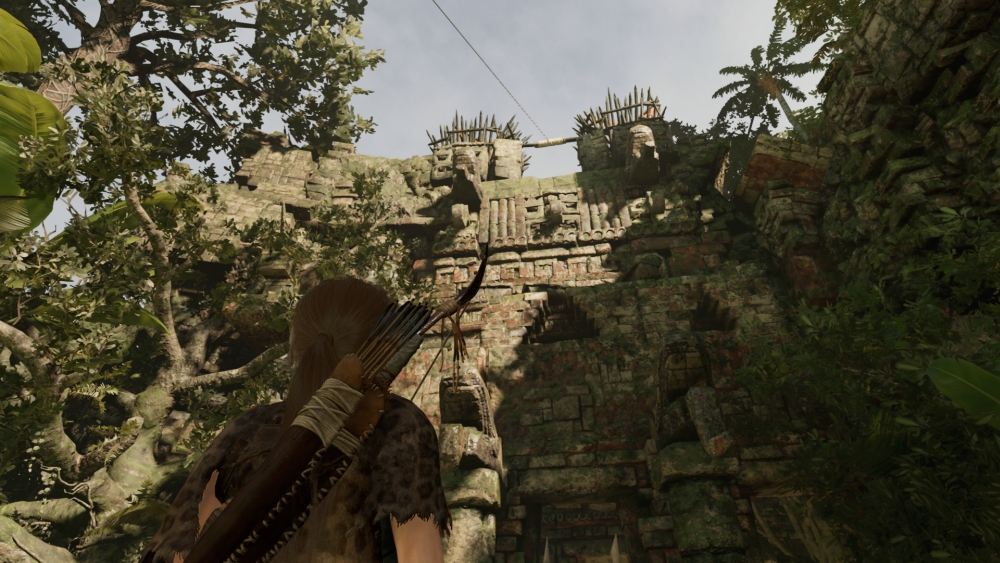
Sure, there are the simpler crypts that provide you with crafting recipes for outfits with a small range of bonuses. But these are usually pretty straightforward, and the danger here is simply avoiding traps along an otherwise straightforward path.
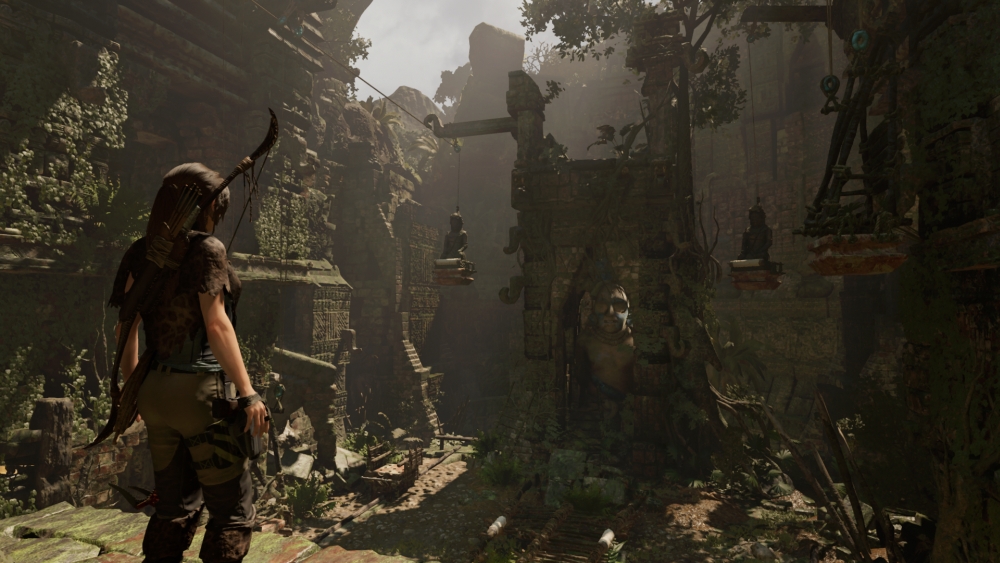
But you know you’re entering a proper Challenge Tomb when you approach pathways with skulls marked with yellow paint adorning the entrance. And that’s where most of the game’s meat lies. Each one serves as both eye candy and a test of skill in maneuvering and platforming. The best thing about this game is you can change the difficulty of the puzzles if you feel it’s too easy or too difficult.
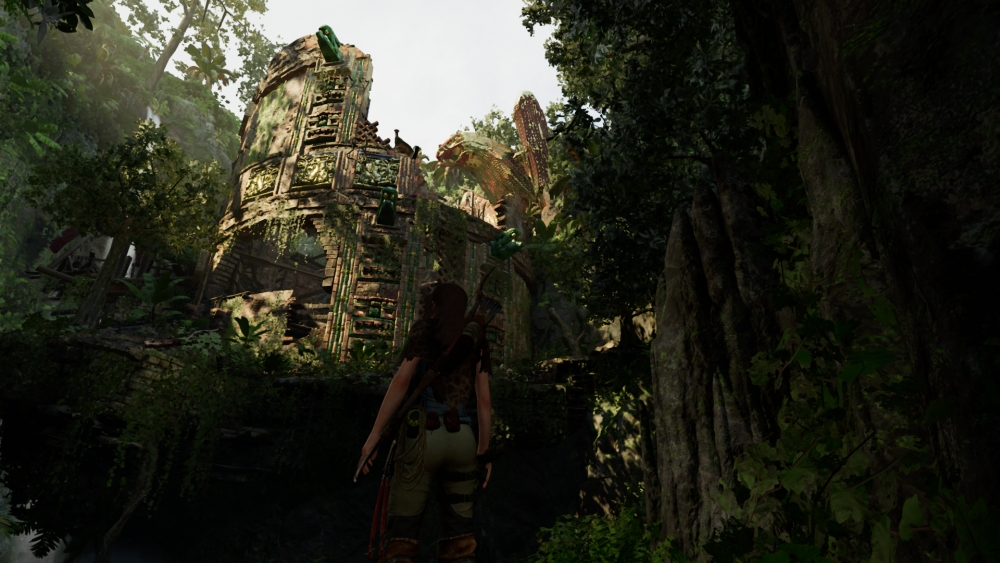
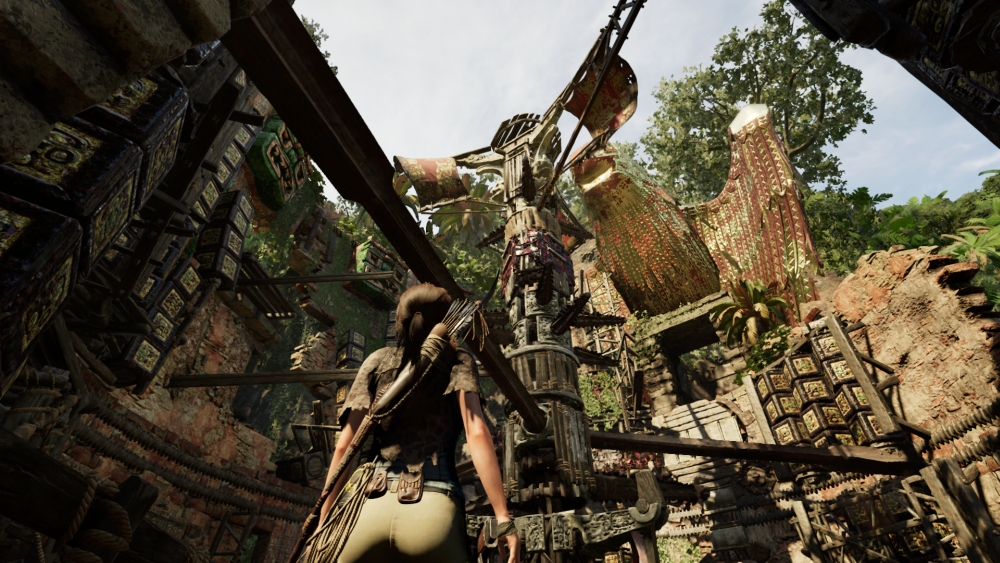
On the subject of difficulty, Shadow of the Tomb Raider is a gem as you are allowed to tune the difficulty of the game to your liking. Instead of a general difficulty level, you can individually change the difficulty for combat, exploration and puzzles. Using these, you can tune the game so that it’s truly perfect for you.
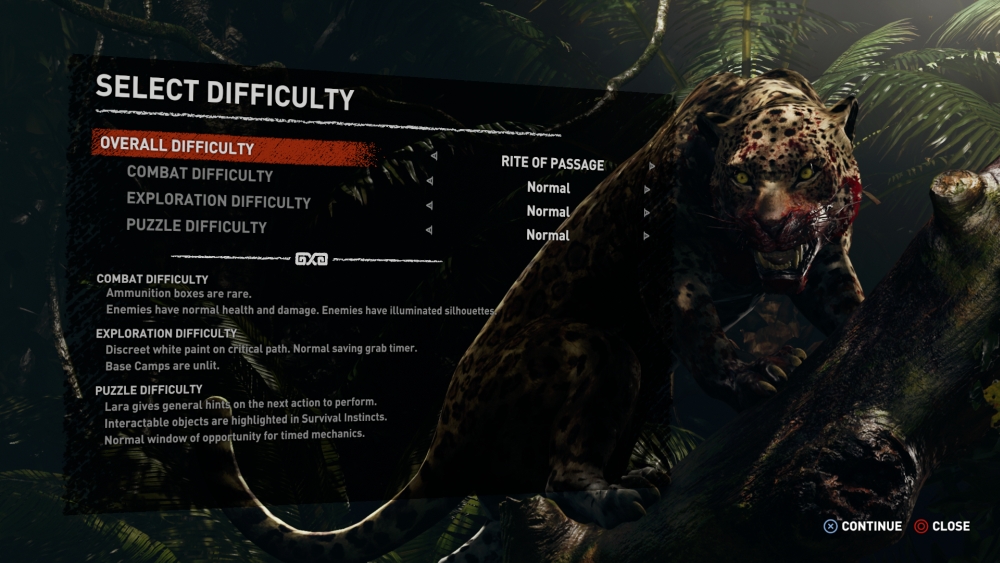
Graphics
Considering this review was done using the first generation PS4, it’s bound to be a less-than-optimal experience in the presence of the PS4 Pro, not to mention a fully decked out gaming PC. That said, the game has plenty of eye candy, and no, we’re not talking about Lara here. That title goes to the wilderness of the Peruvian jungle and the dangers that lurk in them.
Lara herself, despite her young age, looks like she’s aged poorly from the previous two games from certain angles.
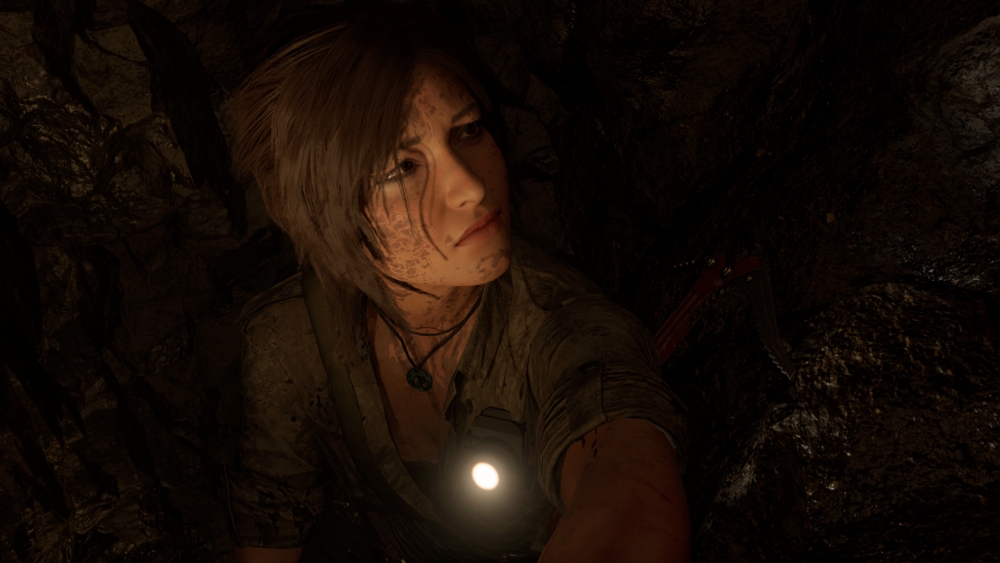
In an unironic oxymoron, the deadlier a scene is, the more beautiful, breathtaking and calming it usually is. If the phrase ‘deadly beauty’ was made for anything, it’s most likely for such scenarios. The best examples of these are, again, the Challenge Tombs. When you’re past the introductory platforming sections and finally reached the core challenge, the camera automatically pans out so that you see the Challenge Tomb from the best angle possible.
From here, you can take in the scenario for as long as you need to, and brace yourself for more than a few attempts at solving the challenge, and maybe leading Lara to her death a few times.
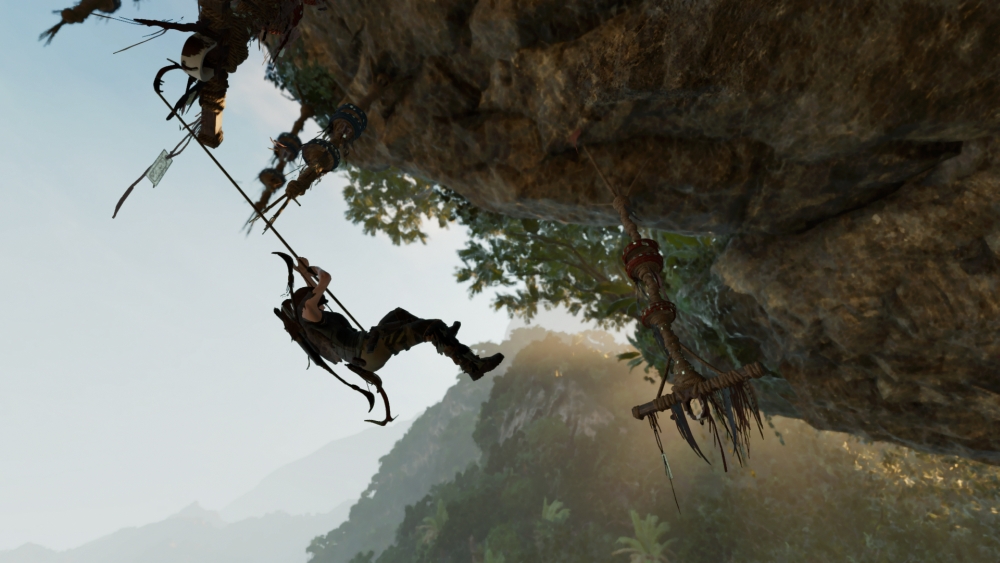
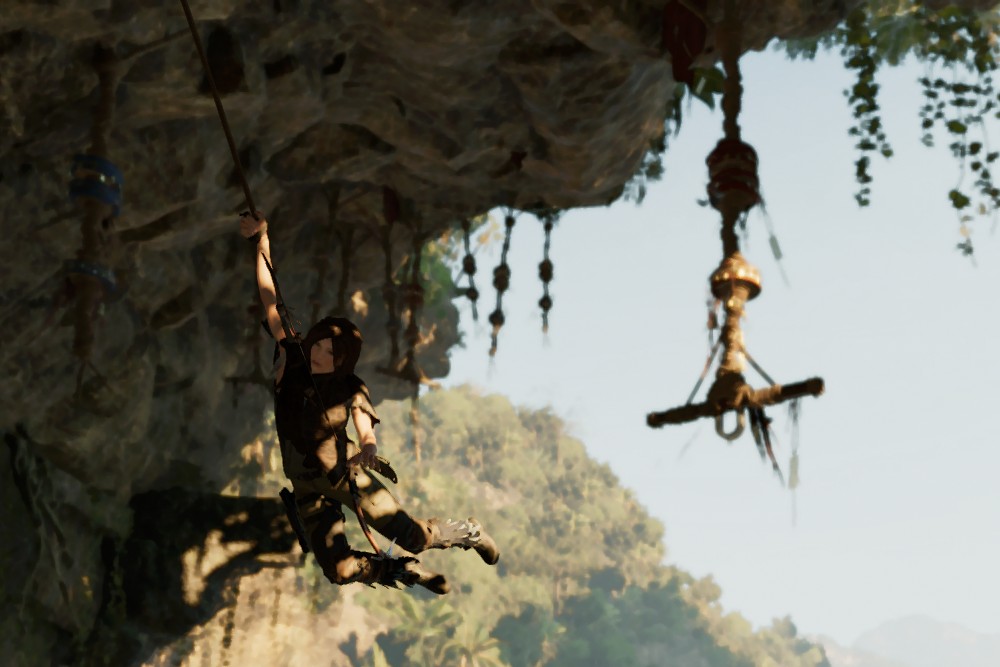
This also leads to some easy screenshots. For the more artistically inclined, you have a Photographer Mode for you to go wild. Well, I say wild, though the photo mode is oddly restrictive when it comes to zooming and panning the camera. Beyond that, you’re free to set your desired depth of field, filters and even frames.
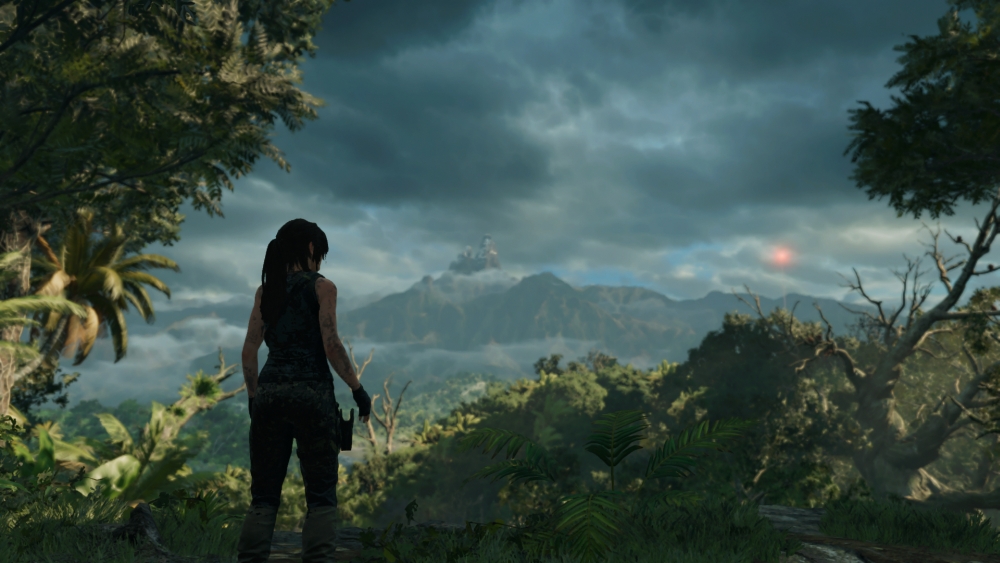
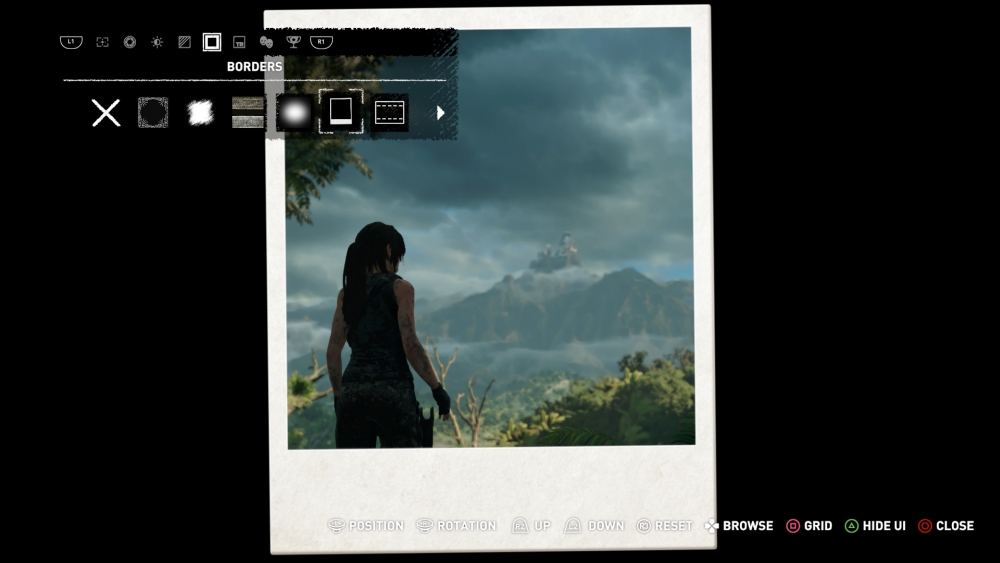
Conclusion
Shadow of the Tomb Raider is, without a doubt, a great game. There’s no denying that it looks pretty, and if my experience is anything to go by, you can certainly play it before completing any of the previous entries. In fact, it may be the better thing to do, especially if you’ve been completely oblivious to the previous titles. If not, then Lara’s bloodthirsty nature in this game may be a little jarring.
But this entry in the Tomb Raider series is definitely one that’s true to its name. While not really plentiful, the Challenge Tombs have the potential to make the rest of the game feel like icing on the Tomb Raider cake.
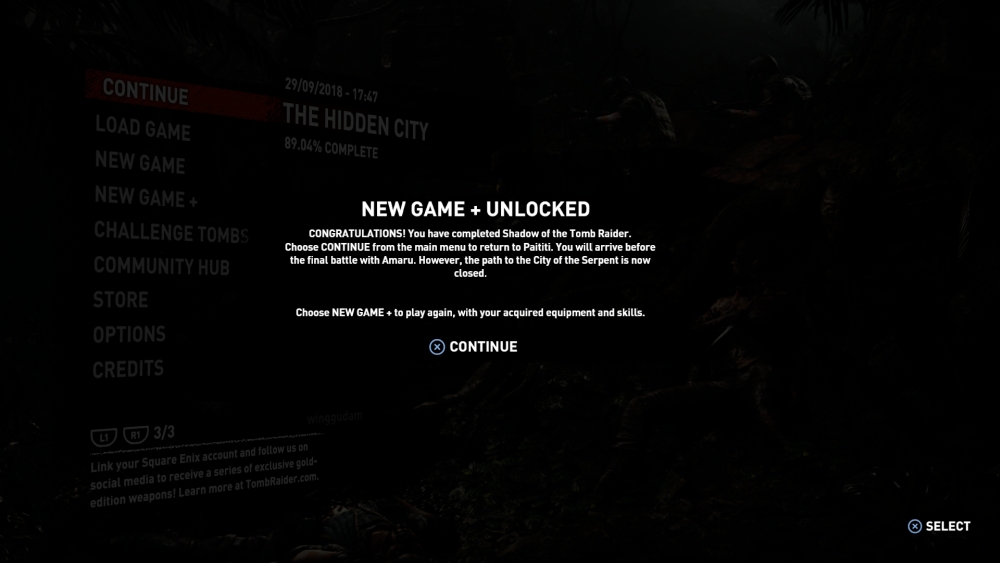
Sure, the story is engaging enough for a game with plenty of exploration to do, and the wilderness is also pretty to look at when its deadliest denizens aren’t trying to eat you. But they all pale in comparison to most of the Challenge Tombs that are not only good to look at as you enter, but also put your gaming cred to the test.
If you’re someone who’s been following the reboot of the series closely, then there’s no reason to not pick this up. Even if you’re not invested in the series, if you like a good modern platforming game with elements of RPG and survival thrown in, this is still an easy recommendation. As I’ve said before, even if you’re not getting Shadow of the Tomb Raider for the story, you should definitely get it for the Challenge Tombs.
Follow us on Instagram, Facebook, Twitter or Telegram for more updates and breaking news.


